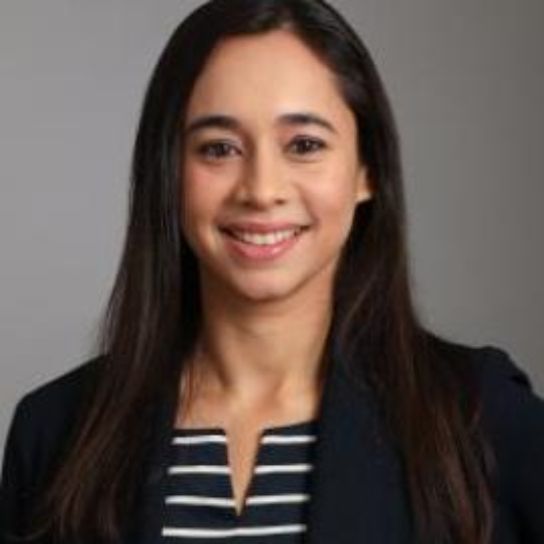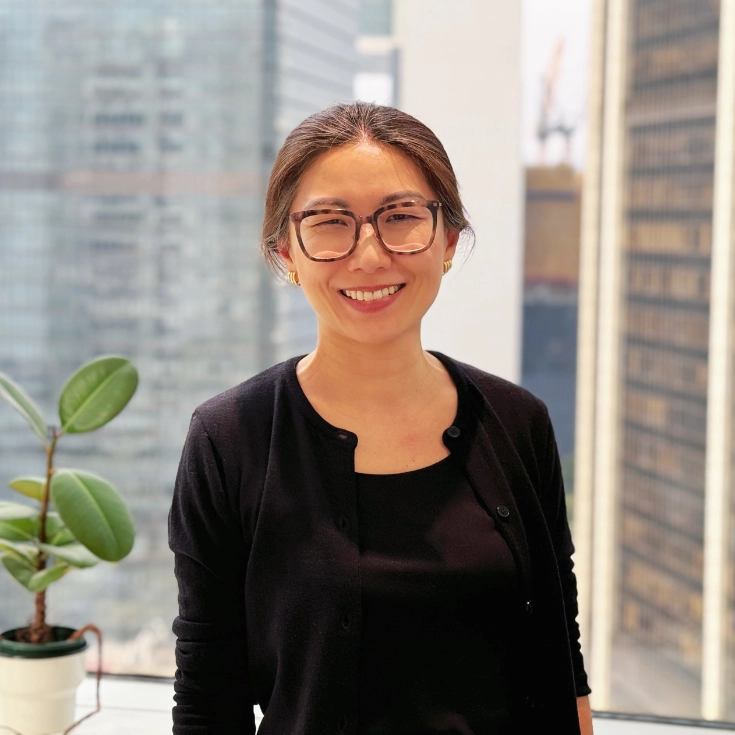Cecily chose to move from Herbert Smith Freehills in-house to a financial services company just as the financial world was about to implode. But she backed herself to make the jump and it has certainly paid off.
“When I went to university in Australia, I hadn’t planned on being a lawyer, even though I studied law as part of my degree. My other subject was science, but I found I preferred the business aspect of law. After graduating, I joined Coudert Brothers in Sydney, and had an opportunity to work for them in Hong Kong in 2000. That made sense because I am bilingual in English and Cantonese. Going to Hong Kong was only meant to be temporary but it became permanent.
I joined Herbert Smith, as the firm then was before the merger with Freehills, in 2005. They needed someone to join their Corporate team, which was my area of practice. I worked mostly on M&A and equity capital markets transactions, including IPOs, as well as advising clients on their regulatory requirements.
We advised a range of clients, including financial services companies and some PRC companies. My most memorable transaction was helping a mainland Chinese gold mining company list on the Hong Kong market. This was a challenge for me, at least initially, because we had to do everything in Chinese. At that point, my Mandarin was not that good, so it was a steep learning curve. At the start, it would take me ages just to write the simplest emails, but over the course of the year I got quicker and more comfortable! It was brilliant to see an IPO through from start to finish.
I really enjoyed my time at Herbert Smith. I worked with some terrific lawyers. We were well resourced and, of course, we had great quality of work. Several people were influential, but two stand out for me. Ashley Alder, who later became CEO of the Securities and Futures Commission (SFC) in Hong Kong, was impressive and clients appreciated his insightful advice in context of the regulatory landscape. Tommy Tong, another great partner I worked for, was always very exacting, and had a good grasp of client needs. In their own different ways, they helped me become a better lawyer.
I enjoyed my time with the firm, but, after three years, I was looking for a change. I had also worked a lot with in-house counsel and liked the fact that they got closer to the business. As a private practice lawyer, you work on discrete transactions and rarely, if ever, get fully immersed in the business of your clients – whatever the law firms say about how they truly know the business of their clients. That is simply not possible.
An in-house counsel needs to have a strong problem-solving mindset and be prepared to recognise that often the problem you need to help resolve may not even involve a legal question or answer.

Since moving in-house, I have come to understand and appreciate this even more. For anyone else thinking of making that switch from private practice to going in-house,
the main thing is that the in-house counsel needs to be proactive about adding value. This can be quite different from being a private practice lawyer where the work that you do tends to be more defined. For example, an in-house counsel needs to have a strong problem-solving mindset and be prepared to recognise that often the problem you need to help resolve may not even involve a legal question or answer.
Also to be able to add value you need to have and maintain a thorough understanding of the business, as it evolves and through different cycles, in order to spot issues and provide advice that is well-tailored to how the business is operated, as well as the priorities of the business. An important part of that is to be able to strike the right balance between legal risk mitigation and achieving business objectives – as in-house counsel you will often have to help make this judgment call.
I decided to make a move in the summer of 2008, just as the financial crisis was coming to a head. I was going to join the investments arm of AIG, which, as it turned out, had to be bailed out by the US government. However, I decided that I would see it through. In fact, the circumstances made for a very interesting couple of years, as AIG sold its global investment business which became PineBridge in 2010. I was involved in the legal aspects of the sale, including the pre-sale restructuring of our business to prepare for separation and securing all the necessary regulatory approvals for the change of owners.
As from 2013, I have been deputy general counsel, and the chief legal officer for Asia ex-Japan. I head up a team of four lawyers, and we work on a range of legal matters, such as client agreements and setting up funds, regulatory advice, strategic initiatives, employment matters and handling our general operational contracts, among many others. As I mentioned above, you have to be prepared to deal with everything that comes across your desk.
I enjoy the regional nature of my role, getting to know the different regulatory requirements in the different markets in which we invest, as well as appreciating the nuances of dealing with different cultures.
The work is continually interesting, and I enjoy the risk-reward calculations that go into investments. In recent years, ESG has become increasingly prominent in our industry, although, to some extent, ESG has long been a consideration. The “G” (governance) has always been a key input – how well are the target investments governed? The “E” (environmental) has certainly come into much more focus, as businesses deal with continued environmental changes and impacts. And “S” (social) involves an array of social factors that have always been relevant as well as newer considerations that are impacting business operations and performance. It is a continually evolving landscape, and this is reflected in the regulatory environment, as well.
Certainly, at PineBridge, we seek to invest in companies that are committed to building financial success while mitigating risk through the improvement of their practices. We look at ESG as a means of analysing both investment risks and opportunities.
I keep in touch with my former colleagues at Herbert Smith Freehills, and always try to go to alumni events, if I can.
Otherwise, I love living in Hong Kong and take full advantage of Hong Kong’s green spaces by walking and hiking. I like to travel. And my partner and I are keen movie enthusiasts.”
Key contacts

Kym Somers
Alumni Manager, London

Olivia Troop
Alumni Executive, London
Are you already registered but need to update your contact details?
Legal Notice
The contents of this publication are for reference purposes only and may not be current as at the date of accessing this publication. They do not constitute legal advice and should not be relied upon as such. Specific legal advice about your specific circumstances should always be sought separately before taking any action based on this publication.
© Herbert Smith Freehills 2024
Stay in the know
We’ll send you the latest insights and briefings tailored to your needs


